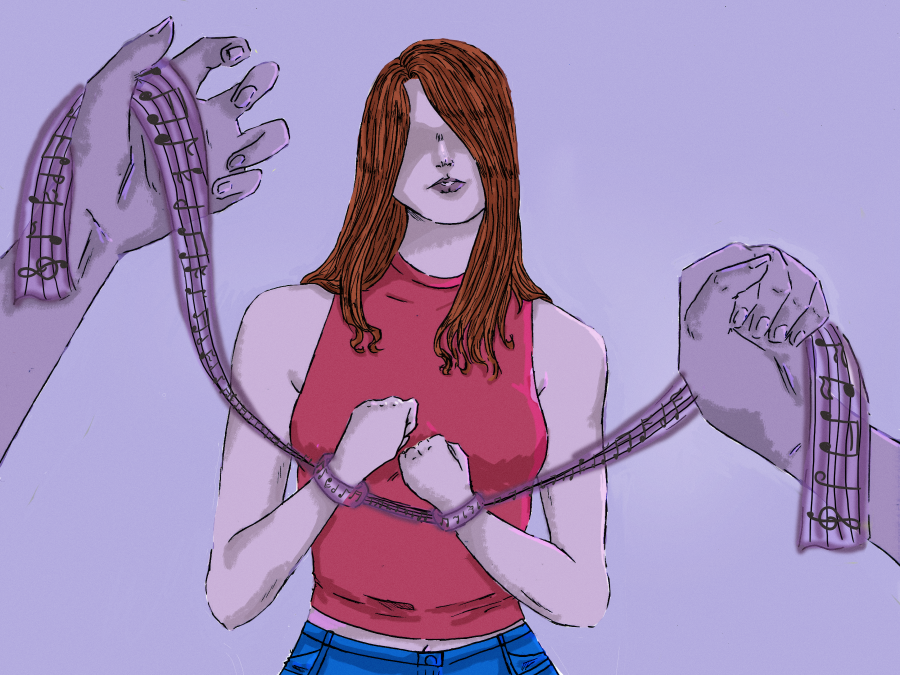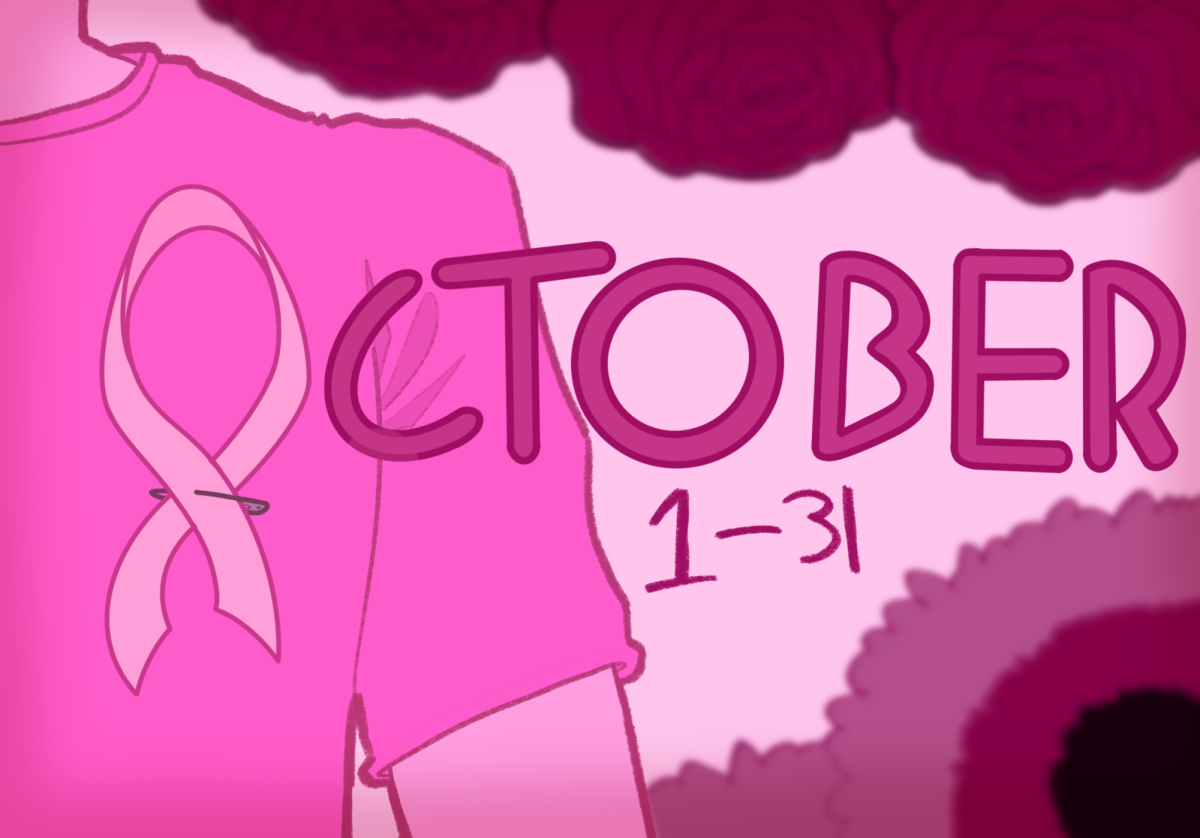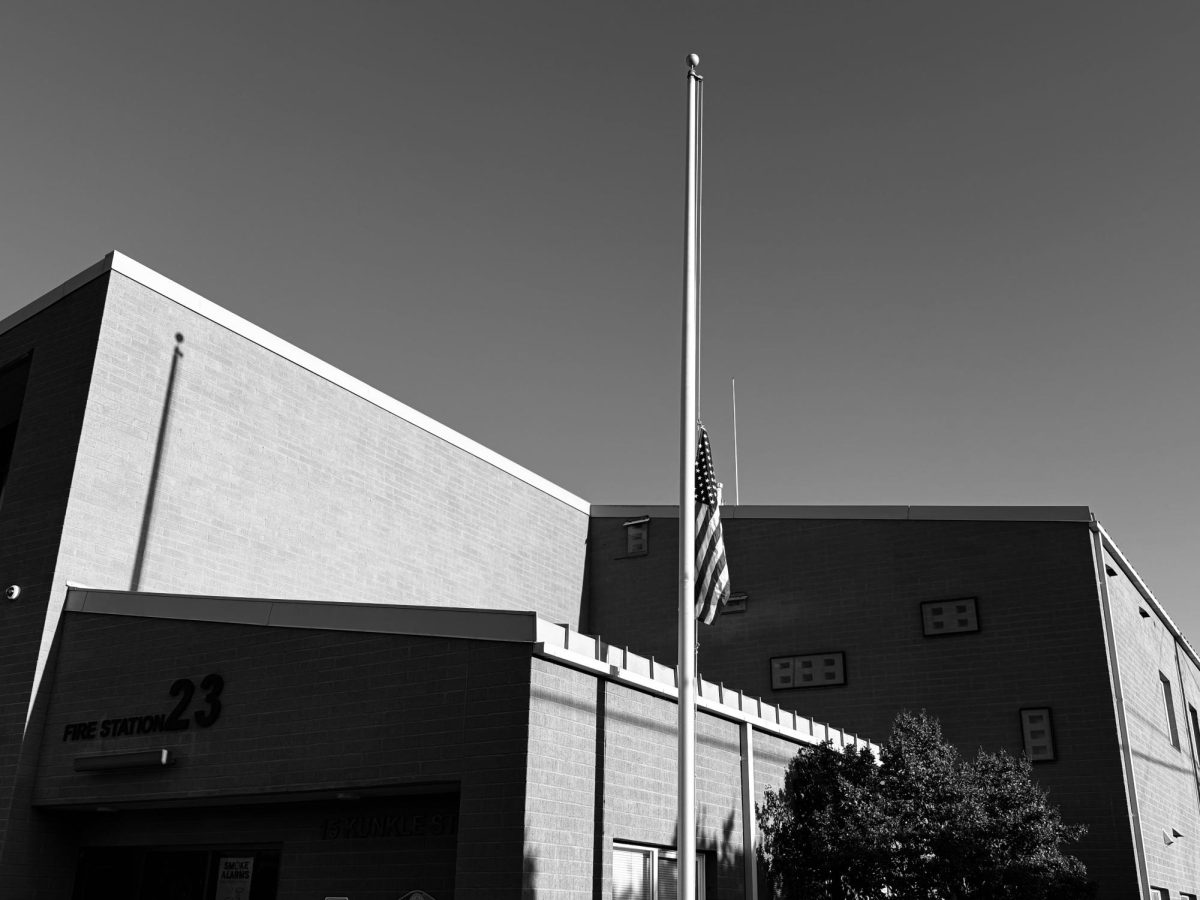Misogyny has been protested, rallied against and spurned as an atrocity. However, this hasn’t stopped musicians who degrade women in their music from gaining millions of views and dollars on their songs that objectify women. Why do these singers have a pass to profit from their sexism? It’s time for audiences to wake up and realize that we must put an end to these musicians’ profit if they glorify misogyny.
In America there are two to four million women a year that have been domestically abused but there are 3.8 million views for Eminem’s song, “Kim”. In this song Eminem openly sings about beating his wife.
The views he has towards women is evident in this song such as in the lyrics “If you move again I’ll beat the s**t out of you” and “We’ll be right back/Well I will you’ll be in the trunk” but it hasn’t stopped anyone from listening to his music. It is beyond disturbing that a song that glorifies domestic abuse and hatred towards women has about as many views as there are cases of domestic abuse.
Maybe that’s why there are so many cases. Viewing women as inferior and possessions is becoming normalized so people think that it is not an atrocious crime instead of ostracizing misogyny from society.
Chris Brown has also been known for rapping about misogynistic themes. Brown has been accused of assaulting his ex-girlfriend, Rihanna, and also punching a female fan in the face. His song “Fine China” contains lyrics that shows that he believes women are “collectible,” showing that he equates women to possessions instead of treating them as human beings. As an audience, with each view we let him gain and each album we let him sell, we normalize the idea that he can treat women as if they belong to him.
These misogynistic themes are not only in rap but also in pop and rock. Guns N’ Roses sing about assaulting women and using them as if they’re possessions in “It’s So Easy,” In both the video and the lyrics, “Blurred Lines” by Robin Thicke sexually objectifies women. It doesn’t stop there though.
The Beatles, one of the most respected bands known for influencing pop more than any other band, has even created a song called “Run for Your Life” that speaks about a man threatening a woman that he will kill her if he sees her dating another man. These types of songs seem to be everywhere but there is no outrage.
Foothill student Melissa Garcia ‘20 said that “what’s on the radio today is really misogynistic.”
It is evident that many people are exposed to these misogynistic songs everyday in a variety of genres but it seems that people listen despite the lyrics. Many people just listen to songs simply because they like the beat.
Garcia said she thinks people listen to music “because of the beat not the lyrics; lyrics aren’t really that meaningful.”
Ryan Brunett ‘19 said he think it’s because “of the sound, for sure. If you look at pop songs like ‘Roar’ by Katy Perry it literally had the same lines over and over again. ‘Gangnam Style’, nobody knew what the guy was saying. It’s all in the beat and how the instruments make them feel rather than the lyrics.”
However, if you are listening to the beat you are also listening to the lyrics even if you don’t pay attention to them. This means that you are contributing to the progression of misogyny even if you don’t realize it. If you like the beat then that is okay, but no musician should be rewarded for targeting and degrading women.











T • Oct 19, 2017 at 8:34 pm
Just because an artist sings about gang violence, doesn’t mean they’re endorsing it right? Although I can agree there is some misogyny in songs within the rap genre, most artists just sing about personal experiences, or whatever they think will make for an interesting and popular song. Singers and rappers alike both exaggerate, but for the most part they sing about their lifestyle. Your point about Run For Your Life by the Beatles is completely ridiculous. John Lennon sings about his frustration with jealousy. He put his feelings into words, and you criticize him for degrading women? On top of that The Beatles advocated for women’s rights, so I’m not sure why you target them alongside Chris Brown, (who by the way makes sense to be mentioned in this article). Essentially, I don’t see this as being an important topic to focus on, especially when you take a lot of these songs literally.
jen • Oct 20, 2017 at 9:24 am
unless the song they are writing shames or puts misogyny/abuse in a negative light, it’s passively endorsing it (or at the very least, normalizing it into pop culture). also, if your frustration towards woman/your jealousy involves violence against her, then you deserve to be criticized. just because people have done good things doesn’t mean they can’t have also done bad things.